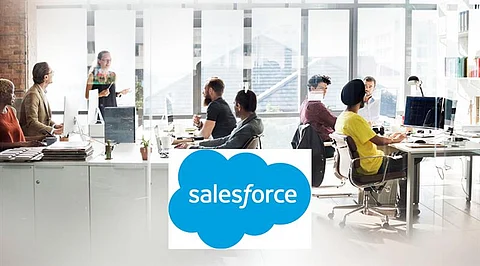

Hiring a Salesforce consultant can make or break your CRM transformation. Whether you're launching a new implementation, optimizing an existing org, or integrating AI and automation, the right consulting support can accelerate outcomes and reduce long- term risks.
One of the first questions that comes up in any Salesforce project is cost. But the answer depends heavily on two things: where the consultants are located and how you choose to engage them.
This blog breaks down the current market rates for Salesforce consultants across key regions and explores how different engagement models affect pricing and outcomes.
Salesforce consultants are in high demand globally, but the cost of expertise varies depending on location, certification level, and availability.
*These are general ranges. Rates can spike based on urgency, niche expertise (e.g., CPQ, Marketing Cloud, Health Cloud), or project duration.
Beyond geography, Salesforce consultant pricing is shaped by several factors:
Role and Certification: Architects and multi-certified professionals command significantly higher rates than entry-level admins or developers.
Project Scope: A simple Sales Cloud setup costs less than a multi-cloud transformation involving AI, data migration, and integration.
Industry: As per cyber news reports,Regulated sectors like healthcare, banking, or government may require domain-specific knowledge, adding to consultant costs.
Timeline: Expedited delivery or short-term contracts often increase rates.
Support Needs: Ongoing managed services cost differently than a one-time implementation.
*These are general ranges. Rates can spike based on urgency, niche expertise (e.g., CPQ, Marketing Cloud, Health Cloud), or project duration.
Note: These roles often work together in teams. Enterprise engagements typically require a mix of these skill sets to succeed.
Best for: Flexible or evolving requirements
You pay for the actual hours worked.
Rates vary based on seniority, region, and task type.
Easy to scale up or down.
Can become costly without clear scope or project governance.
Average Rate: $75 – $200/hr (depending on region and role)
Best for: Well-defined scope and deliverables
You agree to a fixed cost based on the project specification.
Good for budget control, less flexibility mid-project.
Risk is borne by the consultant, hence buffers are often included in pricing.
Typical Range: $10,000 – $200,000+ depending on scope (e.g., SMB setup vs. enterprise multi-cloud deployment)
Best for: Ongoing support, enhancements, or admin-as-a-service
Monthly or quarterly fees for a fixed number of hours or deliverables.
Ideal for orgs with limited internal Salesforce expertise.
Cost-effective for maintenance, reporting, and minor optimizations.
Monthly Retainer: $2,500 – $25,000/month depending on SLA, hours, and expertise included
Best for: Long-term projects, team extension, offshore models
You 'rent' a resource or team that works alongside your internal team.
Offers control over daily work while avoiding hiring overhead.
Popular with startups, mid-size firms, and digital product companies.
Monthly Cost per Resource:
Junior: $3,000 – $6,000
Mid-level: $6,000 – $10,000
Senior/Architect: $10,000 – $20,000+
According to GB Hacker News, A hybrid model is increasingly popular. Strategic functions such as architecture, design, and stakeholder management are handled locally, while development and testing are offshore. This approach controls costs without compromising delivery quality.
Always include a buffer for unexpected needs such as additional user training, third- party tool integration, or platform updates.
Use pre-built accelerators where possible. Many consultants offer industry templates or components that can reduce effort.
Invest in discovery workshops. Clarity in scope and user stories reduces back-and-forth during development.
Plan for user adoption and change management. A technically sound Salesforce implementation that nobody uses delivers poor ROI.
Negotiate around value, not just rate. The cheapest hourly rate might result in longer timelines and rework, while a higher upfront cost can lead to faster business outcomes.
Salesforce consultant costs vary widely based on region, role, and how you engage them. There is no one-size-fits-all approach, but understanding the market benchmarks helps you budget realistically and choose the right partner for your needs.
If you’re evaluating options, start by mapping your project complexity, timeline, and internal capability gaps. Then consider which engagement model and team mix aligns best with your goals. The right consulting partner will not only bring Salesforce expertise but also help you deliver results efficiently and sustainably.
